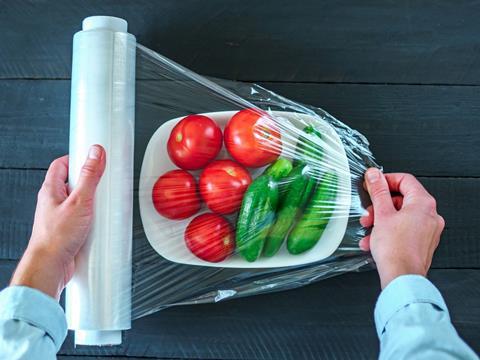
Berry Global’s flexibles division has announced that it has increased its recycling capacity across three of its European recycling facilities as part of a pan-European project to expand production of its Sustane range of recycled polymers.
The company says that by utilizing its global access to recycled plastic, this expansion project will help meet the growing demand for high-performance films made with recycled content.
Representing a range of ‘state-of-the-art’ equipment strategically placed at Berry’s Heanor (UK), Steinfeld (Germany), and Zdzieszowice (Poland) plants, this expansion will reportedly increase the amount of recycled plastic produced across Berry’s European sites by approximately 6600 metric tonnes per year.
Berry says the expansion will also increase the quality of the recyclate used across its B Circular Range of flexible film solutions, helping ensure consistent performance in terms of strength, durability, and protection.
Berry states its Sustane range of recycled polymers delivers a high level of technical performance whilst being suitable for use in a wide variety of applications where prime polymers were previously used. It adds that Sustane polymers are third-party accredited to confirm authenticity of chain of custody claims, providing customers with traceability and reassurance about their origin.
The company says many of the products manufactured at its European films facilities now contain more than 30% recycled content, such as Stretch Hood, NorDiVent vented sacks, FormiFor compression films and peat films for gardening substrates. This aligns with Berry’s goal of achieving 30% recycled content options across all its European flexible films by 2025.
“As part of Berry’s Impact 2025 sustainability strategy, we are committed to helping our customers meet and exceed their sustainability goals. This latest investment in capacity, and the ability to include high-quality recycled content into our films, enables customers to meet both market demands and current and forthcoming legislative requirements,” said Tony Nawar, vice president of sustainability, innovation, & strategy for Berry Global’s flexibles division.
As part of our Finalist Interview series for the 2023 Sustainability Awards, we spoke to Nextek’s managing director Edward Kosior about its COtooCLEAN solution for recycling flexible films (polyolefins) back to food-grade plastic. Kosior said the technology decontaminates post-consumer polyolefins back to food-grade quality using super-critical CO2 (scCO2) to remove oils and inks.
More recently, UPM Raflatac received RecyClass recognition for PE films with its multipurpose UV acrylic adhesive technology, reportedly the first pressure sensitive laminate producer to receive technology approval in this category. The recognition expands UPM Raflatac’s portfolio of RecyClass-approved PE (polyethylene) label materials, recognized to be recycling compatible with coloured and natural PE flexible films.
Borealis acquired advanced mechanical recycler Integra Plastics AD last year in hopes of increasing its recycling capacity by over 20,000 tons and meeting consumer demand for sustainable solutions. Integra Plastics AD’s advanced mechanical recycling plant was built in 2019, and its state-of-the-art equipment converts post-consumer waste into polyolefin recyclate geared towards ‘demanding applications’.
If you liked this story, you might also enjoy:
Report: The ultimate guide to global plastic sustainability regulation
The Brief: Oxo-(bio)degradables: the who, what, and why of breaking down fossil-based plastics
Sustainable Packaging Summit: How Kraft-Heinz uses collaboration to drive innovation
The Brief: Using ocean-bound plastic in packaging – how, why and should we?


